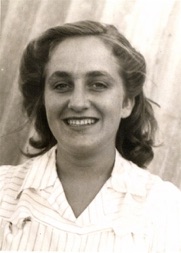
Music from the Carpathian Bow
Text
When we occupied an air base in Hungary I was told by a couple living on a farm close by that the labor battalion I had served in was stationed there until October . Although I had met a few decent Germans, my heart was filled with bitter rancor towards that race for causing so much misery, until I saw German prisoners we captured. In those moments my hatred evaporated and turned into pity. When I looked into their fear stricken faces, I didn't see the formidable, invincible, proud and arrogant members of the master race. What I saw was terrified, defeated mere mortals and, I confess, I felt sorry for them. I knew that where they were going their lives wouldn't be too pleasant. Among those we captured towards the end of 1944 were quite a few fourteen and fifteen year old boys with faces of peaches and cream. It was obvious that their ranks were so depleted that children had to fill the void.
There was one particularly cruel practice in the Russian army that astonished me. There were literally millions of Russian P.O.W.'s held by the Germans who were accorded savage treatment. If any of them miraculously managed to escape and reach our lines, they were invariably accused of espionage. They were, of course, interrogated and forced to confess and sent to Siberia. Those that refused to confess were shot. It was just inconceivable to the suspicious Russian mind that anyone could possibly escape German captivity. Of course, very few managed to escape.
After the fighting ended I spent my days in idleness, visiting several towns in Austria until July, 1945, when I was discharged and traveled by train first to Budapest spending a few days there, then to Brno where I stopped for a few days sleeping over in army barracks. My final destination was Munkatchevo. There I learned that the Soviet Union had annexed Sub-Carpathian Ruthenia and changed the name Ruthenia to Ukraine. There I met several people from Verecky who acquainted me with the stark reality. From them I learned of the magnitude of the Nazis' savagery .Later on my brother Morris arrived and related his experience during the Holocaust. It was then that I realized that my war experience was a pleasure cruise compared to what he went through. In May, 1944, he, Mother, Hersch Leib and Zalman and all Jews from Verecky were shipped in cattle cars to the death camp "Auschwitz." There, Mother and Zalman were led straight to the gas chamber. Morris, then aged fifteen, was taken by the hand by my brother Hersch Leib on one side and my cousin Hersch Leib Teichman on the other side and pulled through the line of those selected for work. If not for those two, he would probably have ended up in the crematorium. Later, they were transferred to a camp in Austria called Mauthausen. I am not going to describe the unspeakable suffering they endured. That is illustrated in Morris's memoirs. My cousin Hersch Leib Teichman also survived but my brother Hersch Leib died in Mauthausen from dysentery .Uncle Moishe and Aunt Dachel perished in Auschwitz and their daughter Bashia died a few days after liberation, ironically, from rich food.
While in Mukatchevo, for sustenance I worked in a tailor shop. After a while Morris, my compatriots and I visited Verecky. That was a mistake. Walking on the main street where most of the Jewish people lived and seeing the destruction was a traumatic experience. All the homes were stripped of the doors and windows. They were dark, empty shells. Where there gad been light, life, song and the sound of children's voices, there was eerie silence. All that was left of the homes of my parents and grandfather were piles of rubble. Among the debris of Grandfather's home I found a postcard written in 1939 by the rabbi advising Grandfather not to go to America. We slept over in a peasant barn and left next day for Mukatchevo. I came away from Verecky deeply dejected, seeking oblivion in drinks.


Memoirs
Boris Segelstein